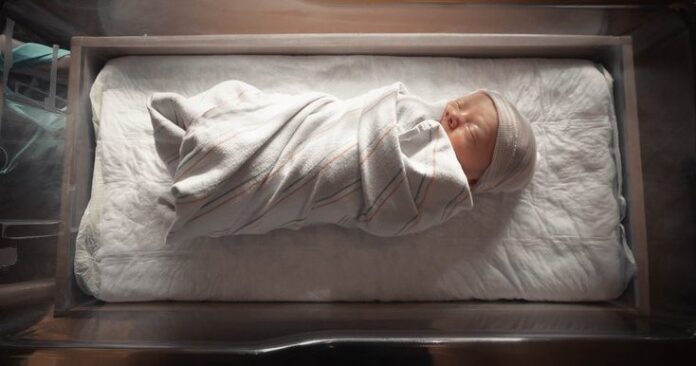The number of babies born with syphilis was 10 times higher last year in the United States than it was in 2012, according to data from the U.S. Centers for Disease Control and Prevention.
Congenital syphilis occurs when a mother transmits the bacterial infection to her baby during pregnancy. The conditions can lead to miscarriage, stillbirth and infant death. Babies born with syphilis may have deformed bones, severe anemia, an enlarged liver and brain and nerve problems, including blindness and deafness.
More than 3,700 babies were born with syphilis in 2022, up from 335 in 2012, the CDC report shows.
This rise is linked to rising numbers of syphilis cases among women of reproductive age, and social and economic factors that hinder access to high-quality prenatal care, federal health officials said. A decline in prevention resources also has contributed to the problem.
“New actions are needed to prevent more family tragedies,” CDC Chief Medical Officer Debra Houry told reporters Tuesday. “We’re calling on health care providers, public health systems and communities to take additional steps to connect mothers and babies with the care they need.”
Congenital syphilis is preventable with timely access to testing and treatment during pregnancy, health officials said.
“Over half of newborn syphilis cases in 2022 happened when people tested positive for syphilis during pregnancy yet did not receive timely and complete treatment,” said Dr. Laura Bachmann, the chief medical officer of the CDC’s Division of STD Prevention.
“Every encounter a person has with a health care provider during pregnancy can be an opportunity for prenatal care and testing for syphilis,” Bachmann added.
More than 70% of the U.S. population lives in counties with high rates of syphilis among reproductive-age women. Barriers to timely testing and treatment range from personal factors such as lack of health insurance and substance use disorder to systemic issues like racism and limited access to health care, according to the report.
Racial and ethnic disparities persist, too. Babies born to Black, Hispanic and Indigenous mothers are up to eight times more likely to have congenital syphilis than those born to white mothers.
Congenital syphilis cases in Philly
In Philadelphia, the growing number of congenital syphilis cases is on par with national figures, according to Dr. Lenore Asbel of the Philadelphia Department of Public Health. There were 26 cases last year, the highest total in more than 30 years. There were 10 cases in 2021 and six in both 2020 and 2019.
Two decades ago, syphilis cases were so low nationally – and in Philly – that the CDC pushed to eliminate the sexually transmitted disease in the U.S. But cases began surging late last decade. Syphilis cases rose by 74% from 2017 to 2021, and congenital syphilis cases rose by 203%.
Asbel said mandatory prenatal screening is a cornerstone of Philly’s efforts to prevent congenital syphilis, ensuring pregnant people are tested multiple times during pregnancy. Last year, the practice helped prevent more than 50 cases.
The health department also follows up with pregnant people who test positive for syphilis to ensure they receive timely and appropriate treatment, and to confirm that their partners undergo treatment to prevent reinfection.
But about two-thirds of infants with congenital syphilis last year were born to people received late, inconsistent or no prenatal care.
“We have been continuing to do some education and reach out to providers, both locally and statewide,” Asbel said. “So, what I can tell you is that, in general, when people make it into prenatal care, OBs follow recommendations very well. So most of the misses, and I think we pointed this out in the health alert last year, are not because providers are not doing the correct thing.”
Last year, the health department recommended providers in non-obstetrical health care settings also screen pregnant people for syphilis – including those working at emergency departments, urgent care clinics, jails, mental health settings and drug treatment programs. Health officials said providers at those sites may see patients who may not be receiving health care elsewhere.



